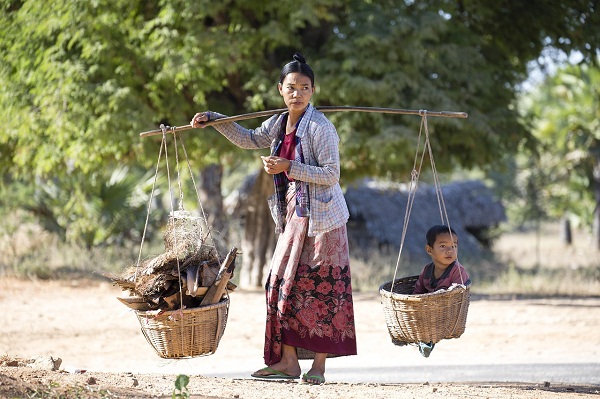
Global human rights organization are keeping a hawk’s eye on Myanmar as 1st February marks two years of military's takeover and the beginning of a nationwide state of emergency. The subsequent social and political turmoil has hampered the economy and stifled it almost completely. Social abuses are far-ranging from inhumane working conditions in factories, wage theft and violence leading to arbitrary arrest and killings.
During this bifurcating economy where on one hand, livelihoods of ordinary people are being badly affected but on the other, a few sectors, such as the garment industry, is moving toward some level of economic recovery. This is seen in the export records of garment products from January to September 2022 to the European Union, Japan US which was $3.3 billion or 1.6 times more than the same period a year earlier.
Companies continue operations
Although the Western governments have imposed sanctions on military-related companies, there are no legal restrictions for Western companies on dealing with partners in Myanmar. Thus the door to business is still ajar to many global apparel brands including H&M, Adidas and Uniqlo to continue ordering products from subcontractors in Myanmar. Companies in other sectors such as Unilever and Toyota Motor are continuing operations in Myanmar and giving a livelihood to factory workers and lower income categories.
According to the World Bank Economic Monitor, in 2022 the percentage of people living below the national poverty line in Myanmar reached 40 per cent, doubling from 20 per cent in 2019, due to the pandemic and military takeover. Weak economic activity is indicative of the range of constraints facing the Myanmar economy.
“Despite severe constraints, economic activity has picked up in some areas, demonstrating the adaptability of Myanmar’s businesses. However, industries more dependent on domestic demand are facing challenges from lower household incomes and rising prices, while agricultural production remains constrained by increased input prices, transport disruptions, and ongoing conflict,” says Kim Edwards, World Bank Senior Economist for Myanmar.
Many look for responsible exit
However, according to the United Nations Comtrade database, around 126 countries imported goods from Myanmar in 2021 which was slightly lower than 134 countries in 2020. Despite this, the total value of the countries' imports saw 7 per cent growth to nearly $21 billion, which shows the country’s exports in the first year of military control expanded sizeably despite international sanctions.
Experts feel it is time for Myanmar to closely cooperate with neighbours such as China, India, Thailand, Laos and Bangladesh to export its products. China had led the export boost as the largest customer for Naypyitaw, with purchases worth over $8 billion in 2021which was a 25 per cent increase from the previous year.
Given the ongoing political turmoil, many big retailers including M&S and Primark have taken steps to stop sourcing from Myanmar and are speaking to the fashion industry and garment workers' rights organizations about a responsible exit. Large UK retailers and other international retailers taking social responsibility and making a Modern Slavery Act submission and many others are expected to follow in the planned exit footsteps in the aftermath of the military coup. As the country faces a political and economic storm, apparel brands sourcing from the country currently remain confused about what the ‘Made in Myanmar” tag may hold for them from the global perspective.












